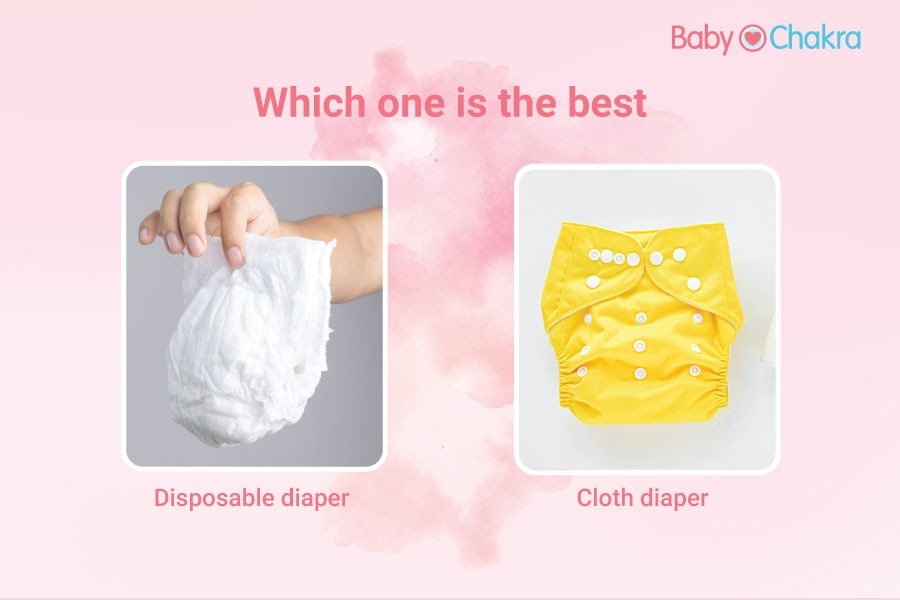
Which One Is The Best – Disposable Diaper Or Cloth Diaper?
27 Sep 2021 | 3 min Read
Dr Vikram Bedi
Author | 1 Articles
Amongst all parenting choices, selecting the best diaper for your child is one of the most challenging tasks for every parent. With the emergence of so many options, parents usually get confused about what to buy and what not? The diaper area, the most sensitive part of the body, is vulnerable to several skin rashes like diaper rash, fungal infection, etc. parents need to be more cautious while picking diapers for the baby.
Diapers are of two types – cloth diapers and disposable diapers. However, which diaper is the better choice can be understood through this article.
What are Cloth Diapers?
Cloth diapers are those traditional cloth nappies having been used for ages. Earlier, parents used these cloth nappies to come in an elementary form. But now, these cloth nappies are changed to diaper form that contains outer waterproof cloth and inner water-absorbent material. These cloth diapers are good to reuse, washable, unlike any other fabric.
What are Disposable diapers?
Disposable diapers are good in their absorbent properties as their inner lining is made of soft water-absorbing material. These disposable diapers are much more efficient in their absorbing capacity and provide comfort to a baby. But, we can not reuse disposable diapers.
Cloth diapers or Disposable Diapers – Which is the Best?
It is not so easy to decide which option is the best. Both kinds of diapers have their advantages and disadvantages. Here are the advantages and disadvantages of both – cloth diapers and disposable diapers.
Comfort and Absorption
Cloth diapers are made from natural materials like cotton, muslin, wool, bamboo, and linen. And to add waterproof features, nylon cloth is usually used. These clothing materials in cloth diapers do not create many risks of skin rashes in and around the genital areas of the baby. However, on the other hand, in the case of disposable diapers, the inner material is made of artificial ingredients, due to which friction with the skin usually leads to diaper rash in babies. But. the soaking capacity in disposable diapers is much better than cloth diapers.
Effect on Health
Disposable diapers, having several artificial and chemical-based ingredients, may lead to skin infections and rashes. Whereas cloth diapers, being naturally made, lead to fewer skin infections. However, cloth diapers have less absorbent power, thus need to change frequently.
Cost
Disposable diapers are pretty much costly in comparison to cloth diapers. The cost of a pack of 30 disposable diapers is equivalent to much more disposable diapers.
Convenience
When convenience is discussed then, disposable diapers capture their first rank. Disposable diapers are good to use while traveling. Many such diapers come with a wetness indicator that says that the diaper is soiled. Likewise, the disposable diaper does not give a foul smell even if it is soiled.
But, on the other hand, cloth diapers are not suitable to use while traveling. Moreover, one has to keep traveling with the soiled cloth diapers because we can reuse cloth diapers these diapers after wash. Furthermore, when the diaper is soiled, it starts giving out unpleasant smells that bother the family and the baby.
With this clear understanding of the advantages and the disadvantages of these diapers, you should now be able to understand which one is for you. It depends on your preference and your baby’s comfort, so trust your instincts – after all, ‘Mommy Knows Best’! You can pick one or try both of them based on your convenience.
A


Related Topics for you
Suggestions offered by doctors on BabyChakra are of advisory nature i.e., for educational and informational purposes only. Content posted on, created for, or compiled by BabyChakra is not intended or designed to replace your doctor's independent judgment about any symptom, condition, or the appropriateness or risks of a procedure or treatment for a given person.
